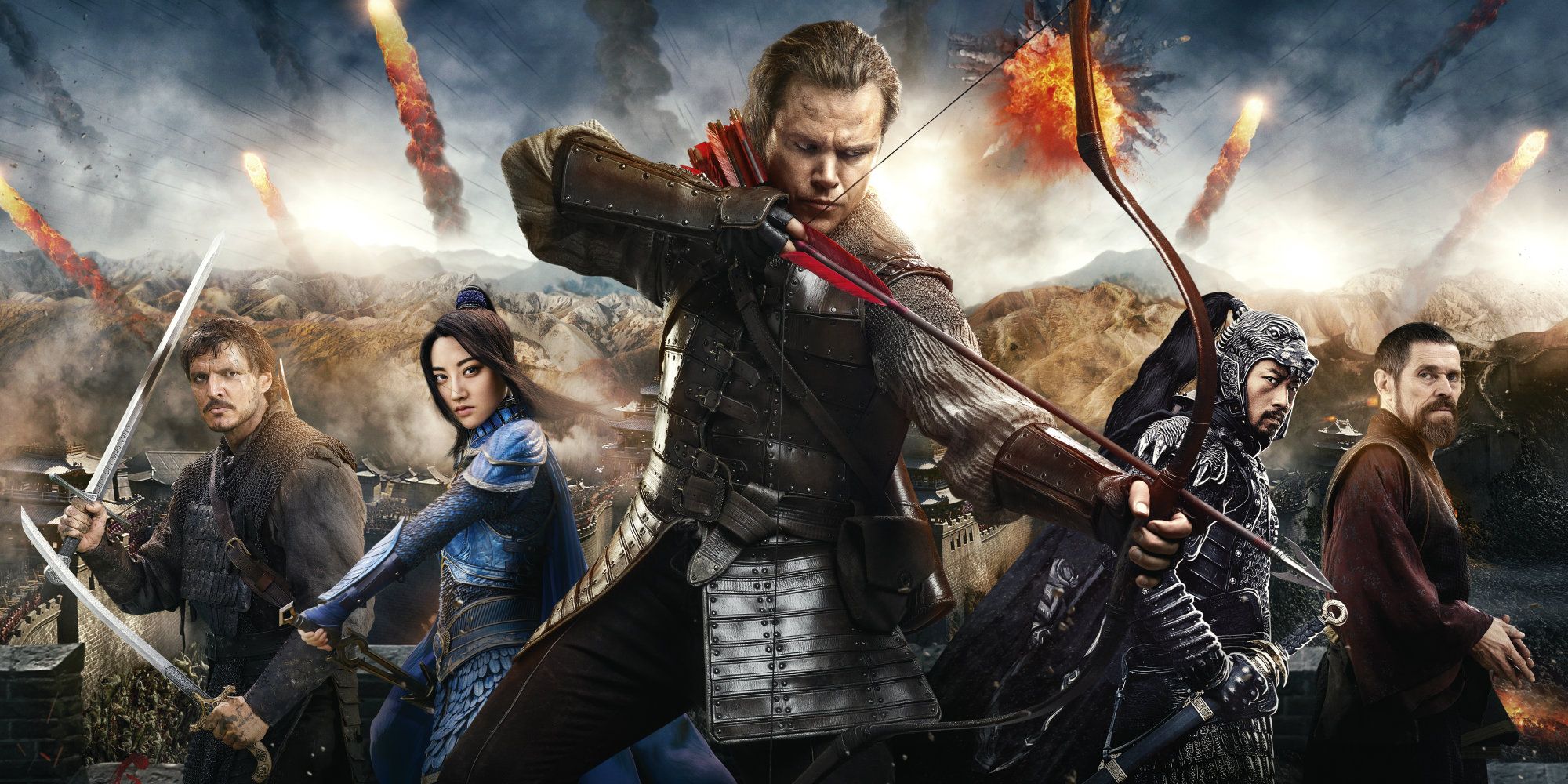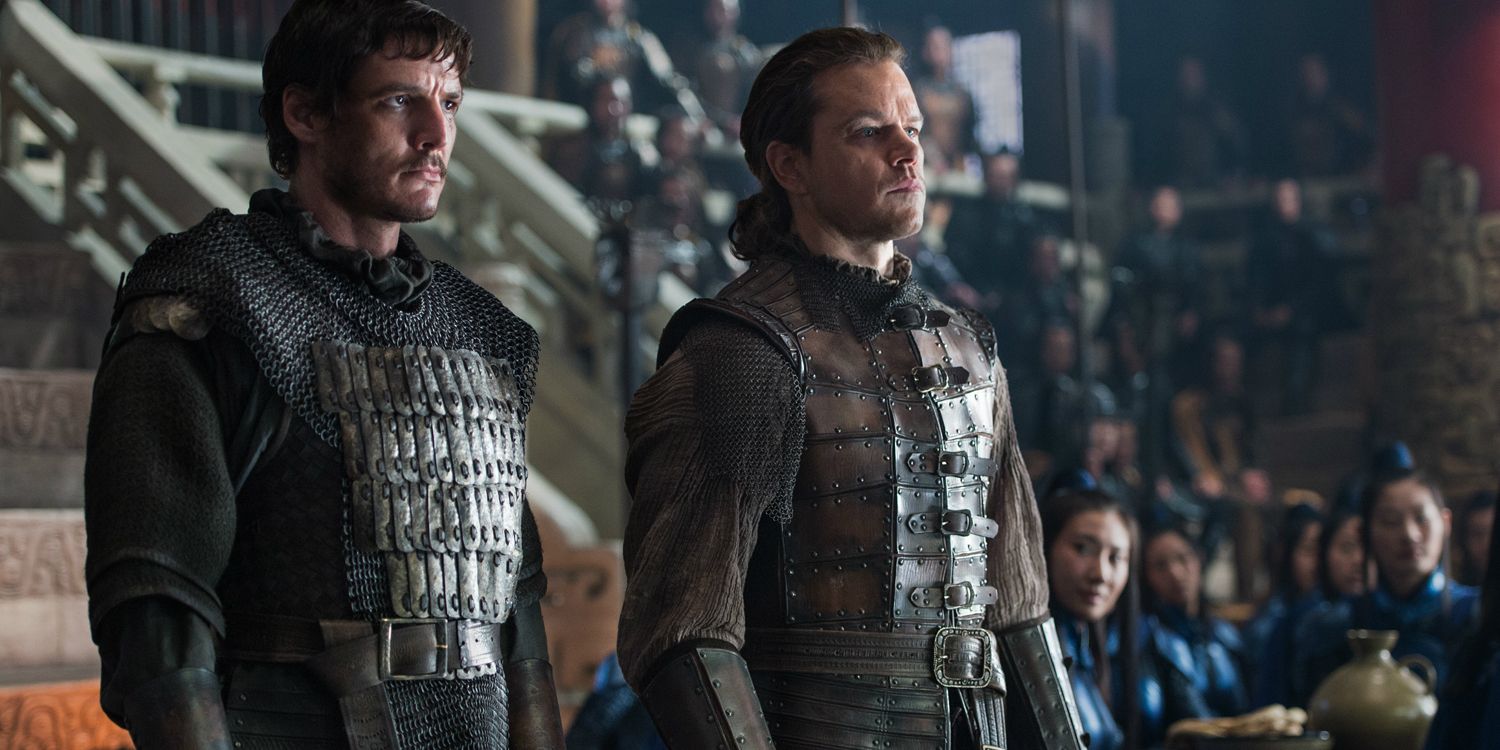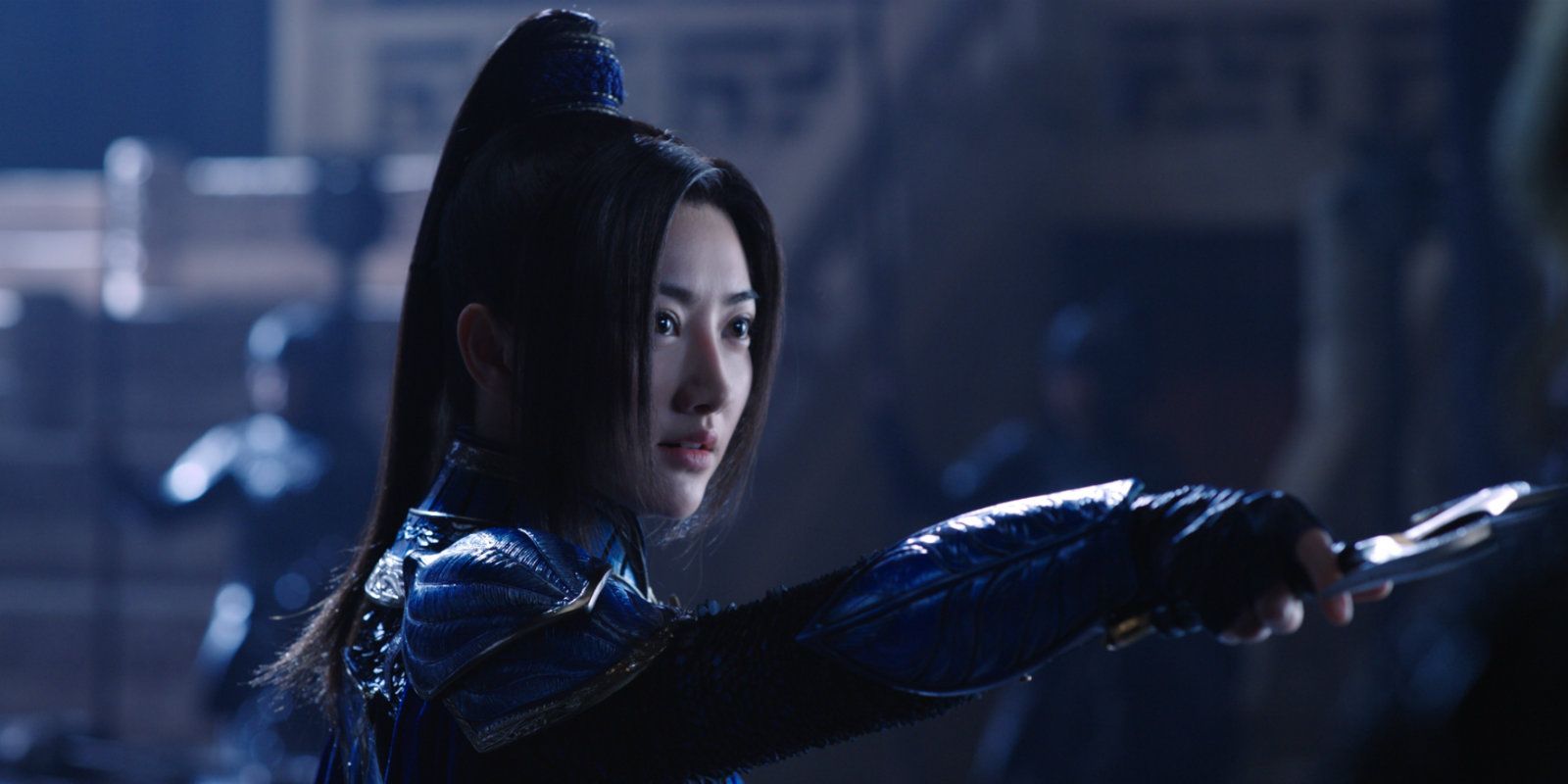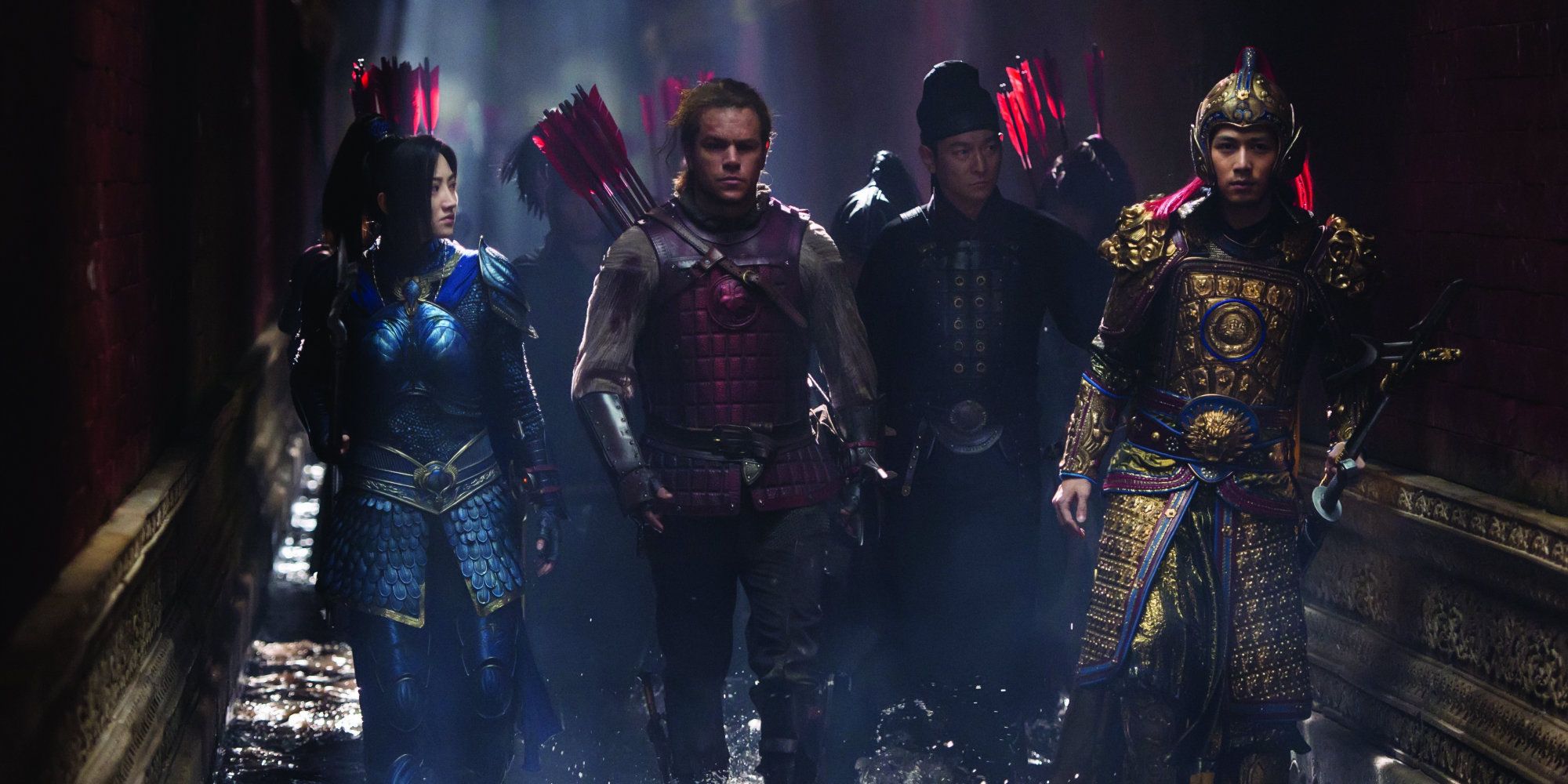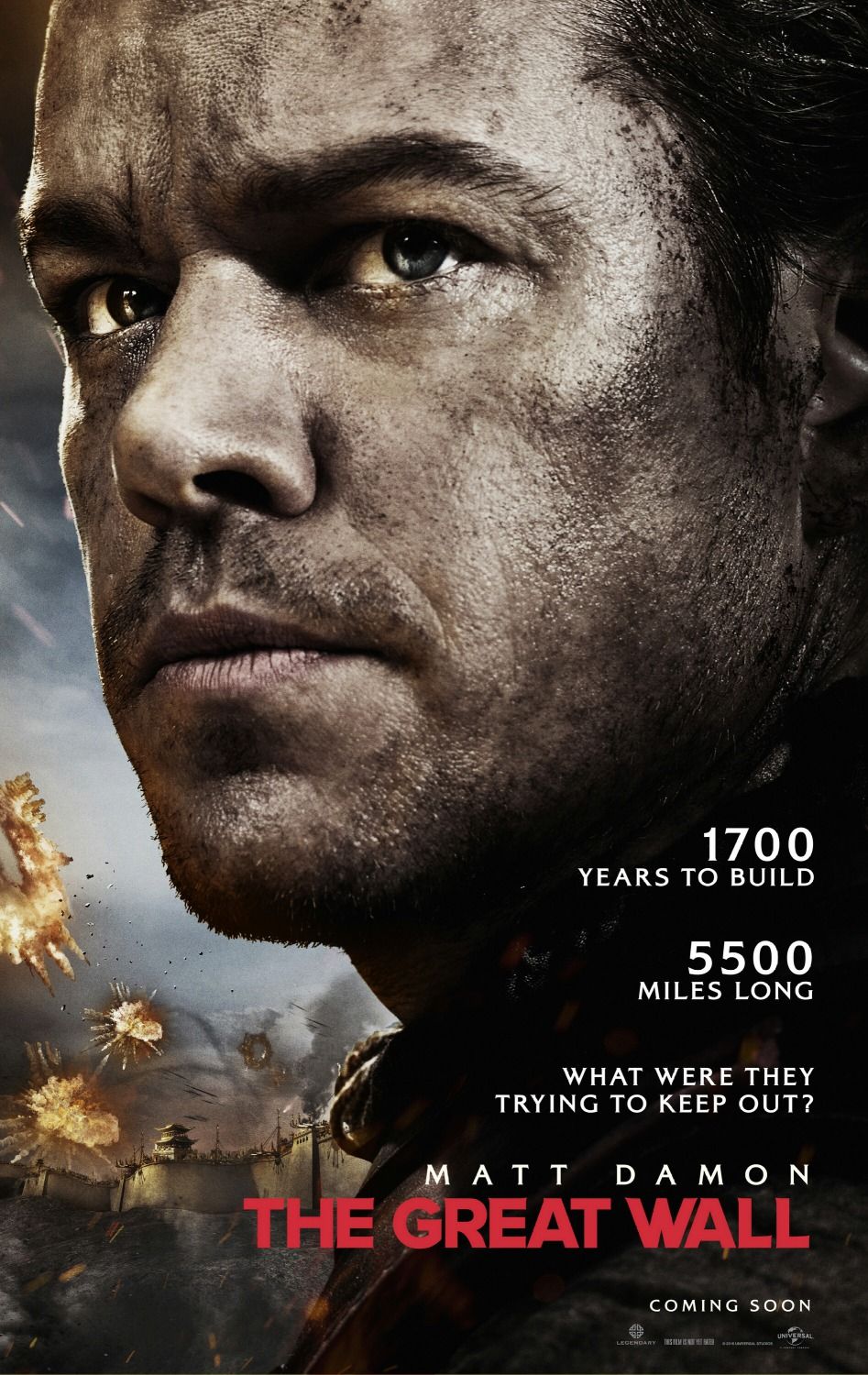Despite some inspired elements, The Great Wall is an odd mashup of Hollywood monster blockbuster and sweeping Chinese fantasy epic.
William Garin (Matt Damon) and Pero Tovar (Pedro Pascal) are a pair of European mercenaries leading some twenty men on a mission in ancient China: to track down and get their hands on the dangerous weapon known as black powder. However, their expedition proves to be far from successful, leaving William and Pero as the only survivors of their original group, after an encounter with a strange creature one night. The duo's prospects fail to improve the next day when they stumble upon the Great Wall of China and are taken prisoner by a secret division of the Imperial army that resides there... only for legions of monsters like the one that they crossed paths with before to appear, launching a full-scale assault against the Wall.
After proving themselves useful in battle, William and Pero are set free and informed by the secret division's leaders - including one Crane Troop Commander Lin Mae (Jing Tian) - that the creatures are mystical beasts known as Taotie and attack the northern region of China (protected by the Wall), every sixty years. When the duo's fellow non-Chinese mercenary Sir Ballard (Willem Dafoe), who has resided at the Wall for decades, approaches Perl and William with an offer to steal the black powder kept there, the latter is faced with the choice: should he accept Ballard's deal or stay at the Wall and fight for something much bigger than himself?
Zhang Yimou is well-renowned for his work on intimate period dramas (Raise the Red Lantern, To Live) and historical martial arts operas (Hero, House of Flying Daggers), but the Chinese filmmaker suffers a rough landing with his leap into the world of big-budget Hollywood tentpoles on The Great Wall. An East-meets-West adventure both thematically and aesthetically, The Great Wall struggles to seamlessly blend the tropes of Legendary's monster movie offerings (Pacific Rim, Godzilla) with the lavishing atmosphere and style of a larger-scale Chinese production, such as Yimou's 2006 film, Curse of the Golden Flower. Despite some inspired elements, The Great Wall is an odd mashup of Hollywood monster blockbuster and sweeping Chinese fantasy epic.
The mythology and world-building in The Great Wall script credited to writing duo Carlo Bernard and Doug Miro (Prince of Persia: The Sands of Time), as well as Tony Gilroy (Rogue One: A Star Wars Story), and based on a screen story conceived by World War Z author Max Brooks, is itself a mixed bag. While the intricacies of how China's secret army division operates is fascinating and the fantasy allegory presented by the Taotie in The Great Wall has potential, the latter creatures are little more than a tired variation on the typical mindless army of CGI monsters functioning with a hive mentality - minus the complexities of similar and more interesting creatures from recent blockbuster fare, such as the Mimics in Edge of Tomorrow. In terms of the humans vs. Taotie battles, they too are a mixed bag that feature some dynamic camerawork and clever uses of 3D visual techniques, but grow increasingly bloated and bogged down in CGI overload, as The Great Wall adds more and more ingredients (read: ancient world battle technology) to the mix.
Yimou's Chinese films, as was mentioned before, are known for their beautiful costumes, as well as their exquisitely-crafted practical sets, and The Great Wall doesn't disappoint in this respect. In spite of this, however, The Great Wall is far less visually pleasing then Yimou's previous movies, as its CGI components (digital tracking shots, green screen backdrops) often stick out awkwardly when juxtaposed with the film's human cast and hand-crafted sets. The Great Wall features two directors of photography in the forms of Yimou's frequent collaborator, Xiaoding Zhao, and cinematographer Stuart Dryburgh (Alice Through the Looking Glass) - something that may explain why the film often comes across as an ungainly hybrid of a Chinese historical epic and Hollywood blockbuster adventure, in terms of its visual design.
While the marketing for The Great Wall has raised concerns that Matt Damon is playing a White Savior archetype, in action Damon's character is more like a glorified sidekick (shoehorned into the spotlight, admittedly) to the film's true day-saving hero; Jing Tian's Commander Lin Mae. Tian does fine playing the budding hero here - boding well for her future appearances in other Legendary films - whereas Damon is unusually-stilted in his performance and has better chemistry with costar Pedro Pascal than Tian. However, as a story about how a warrior from the West (Damon) and a solider from the East (Tian) change and affect one another through their differences, The Great Wall falls short. The way in which the film champions the traditionalist Chinese values of characters such as Lin over those of William is in keeping with the thematic motifs of Yimou's previous movies (see Hero, in particular), but it does so at the expense of giving its protagonists more compelling personal arcs.
Pascal, as was indicated earlier, brings needed charisma opposite Damon in The Great Wall, while Willem Dafoe plays a fellow who is somewhat comically untrustworthy and cartoonishly self-motivated. This is in keeping with the film's general outlook towards Westerners, as is the characterization of the Chinese soldiers played by Andy Lau and Zhang Hanyu - both of them noble, duty-bound warriors who serve the greater good, yet are as two-dimensional as their non-Chinese counterparts. The Great Wall brings to mind co-writers Bernard and Miro's script work on Prince of Persia in this respect, as that film also tried to infuse modern political commentary into a fantasy adventure epic intended for a global audience. While The Great Wall is more narratively cohesive than Prince of Persia, its political subtext doesn't leave much of an impression (good or bad) - as the movie's universe and the people who exist within it, are by and large half-baked in terms of their development.
The Great Wall can be best summed up as an interesting-in-theory, but only partly successful-in-action experiment in blending Hollywood popcorn movie tropes with Chinese historical epic filmmaking sensibilities. Thanks to a surprisingly short runtime (compared to most blockbusters nowadays) and elements that lend it unintended camp value (see again, Damon's stilted performance and accent), The Great Wall may offer decent entertainment for those moviegoers who are in the mood for some silly CGI monster mayhem. For others, however, The Great Wall will probably be little more than a small step up (at most) from such past Legendary tentpole misfires as Seventh Son.
TRAILER
The Great Wall is now playing in U.S. theaters. It is 103 minutes long and is Rated PG-13 for sequences of fantasy action violence.
Let us know what you thought of the film in the comments section!

